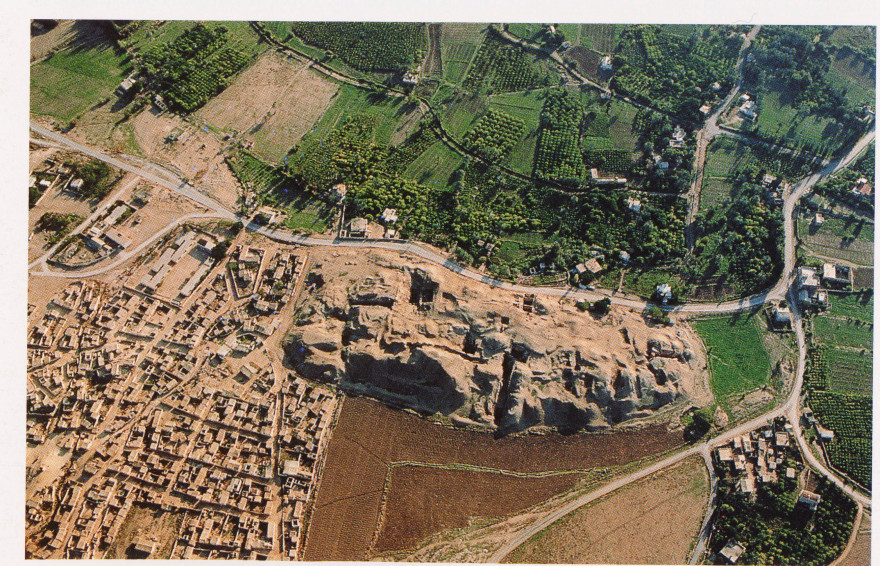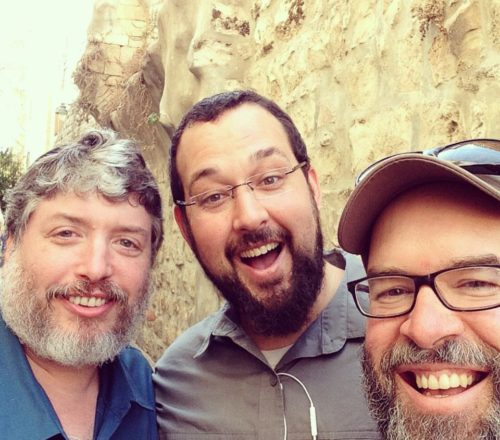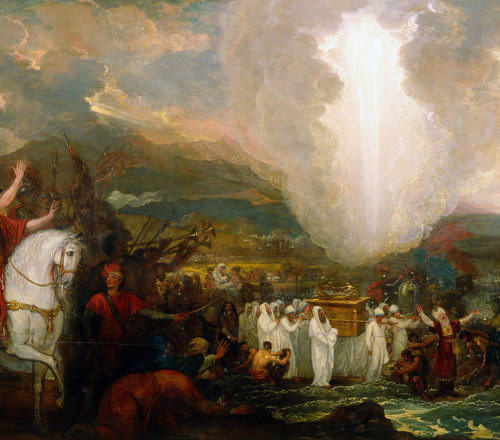Yoel ben Shlomo – Light of the Prophets – Joshua 6:1-8:29

Yoel explains the archaeological significance of Jericho. What does it mean that the wall fell upon itself? Did it fall on a Shabbat? We also discuss the defeat at Ai and the sin of Achan.
Yoel ben Shlomo – Touring Joshua’s Altar on Mount Ebal
[audio:https://truth2u.org/wp-content/uploads/2012/05/Truth2U-Yoel-ben-Shlomo-Joshua-6-8.mp3|titles=Truth2U – Yoel ben Shlomo – Joshua 6-8]
Download this episode (right click and save)
Truth2U Radio is hosted, edited, and produced by Jono Vandor and all programs are made freely available to download. If these programs have been a blessing to you please consider showing your support by contributing a donation. Thank you for listening!





hi jono. just listened and don’t see the link for the interview re joshua’s altar. btw…excellent program. thanks
Thanks Ellen, problem solved 😉
I must say, you didn’t put up much protest at the thought of Israel marching around Jericho armed and ready to do battle on the Sabbath. I know of nowhere in Scripture where YHWH commands Israel to violate His commandments, to go to war on the offensive on Shabbat would surely have violated the 4th Commandment.
This of course is one of the Lunar Sabbath keepers favorite Scripture portions because they have a logical answer to the thought of Israel going to war on the offensive on Shabbat. To the Lunar Sabbath keeper this episode of the battle for Jericho begins on Rosh Chodesh, i.e. the 1st day of the month, followed by six working days, i.e. the 2nd day of the month thru to the 7th day of the month. In Lunar Sabbath keeping the four weekly Sabbaths per month always fall on the 8th, 15th, 22nd and 29th and are therefore never conflicted by the 7 day battle against Jericho.
You might find it interesting to note that The Book of Jasher confirms what I’ve just said in Chapter 88:14 which reads,
“And it was in the second month, on the first day of the month, that the Lord said to Joshua, Rise up , behold I have given Jericho into thy hand with all the people thereof; and all your fighting men shall go round the city, once each day, thus shall you do for six days.”
Of course it goes on to say what happens on the 7th day as well. Don’t you find it interesting that it just happens to fit the Lunar Sabbath method of calendation? Thanks for the program and shalom shalom.
Shalom Ken,
Thank you for the input but I have to point out some things:
First we find in 2nd kings 3:19 that the people of Israel were commanded to destroy all plantations during the war against Moav. This is a contradiction of the Torah law in Deuteronomy 20:19, so it is not unprecedented that a violation of the Torah can be done by a direct command from God.
Second, the book of Yashar has been proven to be a 16th century writing from Naples and that the original printer made up the story when he printed the book in 1552. This has been proven by the type of Hebrew used in the original. I have also gone over sections of the book and the language in many places is not biblical or post biblical.
I also want to challenge the understanding of the book. As you quoted it says in the book that the war was started the day after the new moon, this is not evident from the biblical text. More over why would Israel sit for two weeks waiting until they moved? The text says that Joshua was at Jericho which means that he went to look at the city without the people! This also means that only then did they move to war leaving the rest of non fighting people at Gilgal (Josh 9:1-6). So even if we say that the angel spoke to him on the new moon it would have been some time before the war camp arrived. Also if the new moon is the Shabbat why is Joshua doing strategic planning on Shabbat?
Thank you for listening,
Yoel
Yoel, as you stated it is in the Torah that they were not to make any covenant with any of the inhabitants of the land so how is it that they were able to make the covenant with Rahab without being in violation of the Torah?
Second, when Yehovah orders for people not to murder how does that equate with war?
Third, I’m not sure where in the Torah but I thought it was forbidden to “number” the people to go into war but in Joshua 8:10 it says he “numbered” the people.
ok, and my final question regarding this portion is this: I understand that sometimes the commandment of Yehovah can violate the Torah (as you stated in reply to someone about the destruction of the vineyards, and as I’m curious about how not murdering relates to war, and how you shouldn’t have any graven images yet on the ark cheribum were ordered, etc)..so I am utterly confused at how we are to know who is a false prophet and who is not..I mean it says if anyone adds to or takes away from Torah (which I would take as also contradicting Torah) then he is a false prophet; therefore, how are we to know and understand who we should and shouldn’t listen to esp. when it is in direct violation of Torah (that is a scary thing for me to think about)..your thoughts are greatly appreciated. Thank you for doing this!
Regarding the Deuteronomy 20:19 and 2 Kings 3 19 are not the same thing. Deuteronomy 20:19 refers to vegetation that is good to eat. Go onto verse 20 and it says it is ok to cut down the trees that don’t bear food.
YHWH never violates his commandments to us. When there is an apparent contradiction it means there is something more to be learned. For example, there is a difference between murder (unjust taking of a life) and killing someone (let’s say in self defense). Killing is the act of taking a life but changing “kill” to “murder” implies evil intent. If someone breaks into your house and threatens to murder your family, it is not with evil intent that you would stop that person by almost any means necessary.
Never read just one verse, all of scripture is one solid message and precept is built upon precept. This is something most, including myself, struggle with from time to time. At the very least, when you have a questionable verse read the entire chapter, including the chapter before and after, for some context and look up related verses.